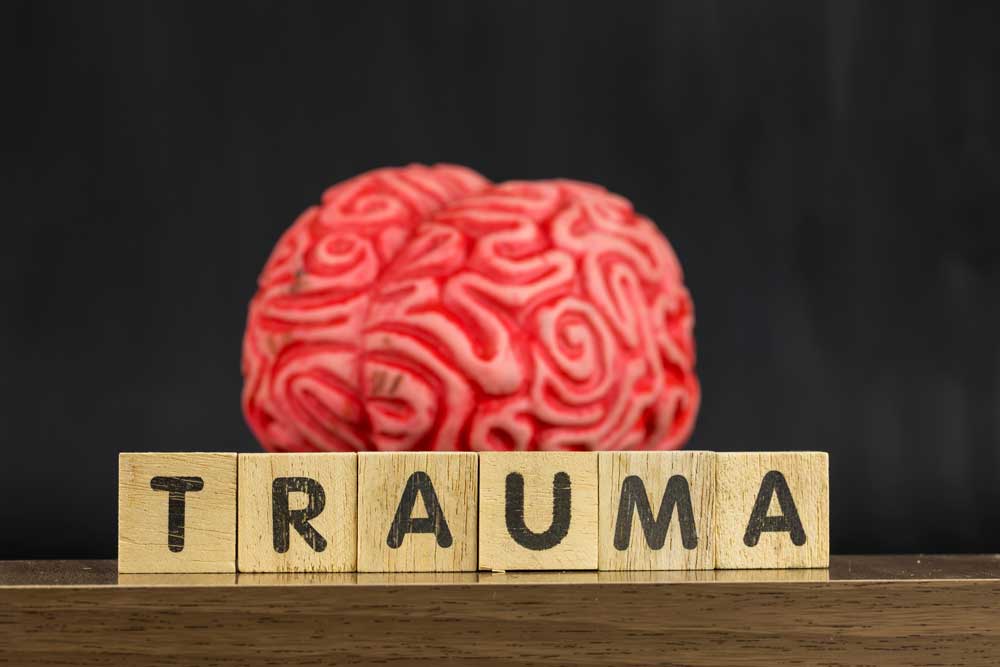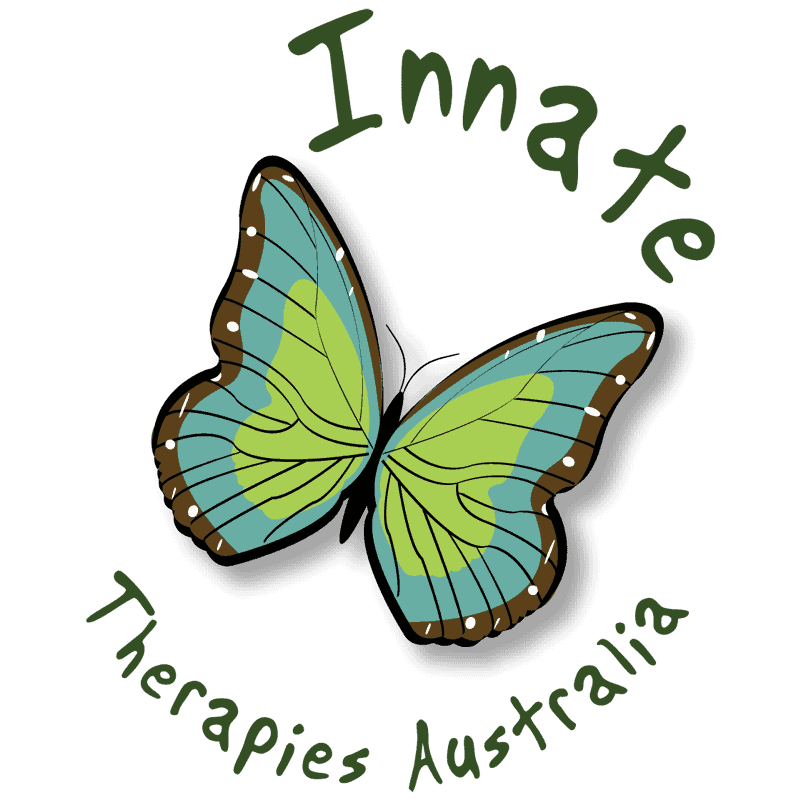The Lingering Shadows: How Childhood Trauma Impacts Your Adult Life
Childhood is often idealized as a time of innocence, playfulness, and boundless joy. Childhood can be tough for some people due to bad experiences. These experiences can leave lasting effects on their lives as they grow up. Childhood trauma impacts adult life.
This blog will discuss how childhood trauma affects adults, the importance of trauma counseling, and the healing approach of Innate Therapies. It will also explore play therapy, a method that helps children express emotions and heal from their past experiences.
The Enduring Impact of Childhood Trauma
Childhood trauma includes various upsetting experiences like abuse, neglect, losing a caregiver, or seeing violence. The effects of these experiences can be profound and enduring, shaping various aspects of an individual’s adult life.
- Emotional and Psychological Consequences
Childhood trauma can leave deep emotional and psychological scars that persist into adulthood. Survivors of trauma may experience:
Anxiety: Constant worry, heightened levels of fear, and a sense of impending danger.
Depression: Persistent feelings of sadness, hopelessness, and a loss of interest in life.
Post-Traumatic Stress Disorder (PTSD): Flashbacks, nightmares, and severe anxiety triggered by reminders of the trauma.
Low Self-Esteem: A diminished sense of self-worth and self-doubt stemming from early experiences of neglect or abuse.
- Impact on Relationships
The effects of childhood trauma often extend into adult relationships. Individuals who have experienced trauma in their early years may find it challenging to:
Trust: A history of betrayal or abuse can lead to difficulty in trusting others, making it hard to form close and meaningful relationships.
Intimacy: Trauma survivors may struggle with emotional intimacy, finding it difficult to open and be vulnerable with partners.
Communication: Childhood trauma can hinder effective communication, leading to misunderstandings and conflicts in relationships.
- Coping Mechanisms
To manage the pain and distress caused by childhood trauma, individuals often develop maladaptive coping mechanisms. These mechanisms can include:
Substance Abuse: Turning to drugs or alcohol as a means of self-medication to numb emotional pain.
Self-Harm: Engaging in self-destructive behaviors, such as cutting or other forms of self-injury.
Risky Behaviors: Seeking excitement and danger as a way to distract from emotional pain, often leading to dangerous situations.

The Enduring Impact of Childhood Trauma
Childhood trauma includes various upsetting experiences like abuse, neglect, losing a caregiver, or seeing violence. The effects of these experiences can be profound and enduring, shaping various aspects of an individual’s adult life.
- Emotional and Psychological Consequences
Childhood trauma can leave deep emotional and psychological scars that persist into adulthood. Survivors of trauma may experience:
Anxiety: Constant worry, heightened levels of fear, and a sense of impending danger.
Depression: Persistent feelings of sadness, hopelessness, and a loss of interest in life.
Post-Traumatic Stress Disorder (PTSD): Flashbacks, nightmares, and severe anxiety triggered by reminders of the trauma.
Low Self-Esteem: A diminished sense of self-worth and self-doubt stemming from early experiences of neglect or abuse.
- Impact on Relationships
The effects of childhood trauma often extend into adult relationships. Individuals who have experienced trauma in their early years may find it challenging to:
Trust: A history of betrayal or abuse can lead to difficulty in trusting others, making it hard to form close and meaningful relationships.
Intimacy: Trauma survivors may struggle with emotional intimacy, finding it difficult to open and be vulnerable with partners.
Communication: Childhood trauma can hinder effective communication, leading to misunderstandings and conflicts in relationships.
- Coping Mechanisms
To manage the pain and distress caused by childhood trauma, individuals often develop maladaptive coping mechanisms. These mechanisms can include:
Substance Abuse: Turning to drugs or alcohol as a means of self-medication to numb emotional pain.
Self-Harm: Engaging in self-destructive behaviors, such as cutting or other forms of self-injury.
Risky Behaviors: Seeking excitement and danger as a way to distract from emotional pain, often leading to dangerous situations.
The Mechanics of Trauma's Impact
Understanding how childhood trauma impacts adult life involves recognizing the intricate ways in which the past continues to influence the present. Several key mechanisms are at play:
- Neurobiological Changes
Childhood trauma can lead to changes in brain structure and function. These changes can result in heightened reactivity to stress, impaired emotional regulation, and difficulty in forming secure attachments. The brain’s response to trauma can manifest as hyperarousal (constantly being on edge) or dissociation (mentally disconnecting from reality).
- Maladaptive Coping Strategies
Trauma survivors often develop coping strategies during childhood that may no longer serve them well in adulthood. As mentioned earlier, these can include substance abuse, self-harm, or risky behaviors. These strategies offer temporary relief but can exacerbate the cycle of trauma over time.
- Interpersonal Patterns
Childhood trauma can shape the way individuals interact with others. It can lead to difficulties in setting boundaries, forming healthy attachments, and recognizing red flags in relationships. Survivors may find themselves recreating unhealthy dynamics from their past in their adult relationships.
- Emotional Regulation
Trauma survivors often experience impaired ability to regulate emotions. They may struggle with intense mood swings, outbursts of anger, or emotional numbness. This can make it difficult to manage stress and navigate everyday challenges.
Trauma Counseling - A Spotlight on Healing
Trauma counseling at Innate Therapies Cairns helps people recover from trauma by using specialized therapy techniques. It creates a safe and supportive environment where clients can confront their trauma, understand their emotions, and develop healthier coping strategies.
What is Trauma Counseling?
Trauma counseling grounds itself in a deep understanding of how trauma affects the mind and body. It employs evidence-based therapeutic techniques to help clients work through their traumatic experiences and regain control of their lives.
How Can Trauma Counseling Help?
Trauma counseling offers several vital benefits to individuals who have experienced childhood trauma:
Emotional Healing: Trauma therapy offers a secure environment for patients to understand and articulate their feelings associated with the trauma, promoting emotional recovery.
Identification of Coping Mechanisms: Counselors work with clients to identify and replace maladaptive coping mechanisms with healthier alternatives, empowering them to navigate life’s challenges effectively.
Improved Relationships: Trauma counseling can help clients address trust issues and communication problems, leading to healthier and more fulfilling relationships.
Symptom Reduction: It can alleviate symptoms of anxiety, depression, and PTSD, leading to improved overall mental health.
Breaking the Chains: Healing from Childhood Trauma
While the impact of childhood trauma can be pervasive and enduring, it is not an unbreakable chain. With the right support and resources, individuals can heal and lead fulfilling lives.
Trauma-Informed Therapy
Trauma-informed therapy is a specialized approach that recognizes the impact of trauma on an individual’s life. It creates a safe and supportive environment for clients to explore their trauma, process their emotions, and develop healthier coping strategies.
Cognitive-Behavioral Therapy (CBT): CBT helps individuals identify and change negative thought patterns and behaviors resulting from trauma.
Eye Movement Desensitization and Reprocessing (EMDR): EMDR is effective for treating PTSD and involves reprocessing traumatic memories to reduce their emotional impact.
Mindfulness-Based Therapy: Practices like mindfulness meditation can help individuals stay present and manage overwhelming emotions.
Innate Therapies - A Unique Approach to Healing
Innate Therapies in Cairns is a holistic approach to trauma healing that focuses on restoring the innate capacity for healing and resilience within each individual. This new method recognizes how trauma affects the mind, body, and spirit, and helps people regain control of their lives.
Body-Mind Integration: Innate Therapies recognize that trauma is stored not only in the mind but also in the body. Techniques such as somatic experiencing and body-oriented therapy help individuals release stored trauma from their physical being.
Mindfulness and Meditation: Mindfulness practices are incorporated into Innate Therapies to help individuals stay present and cultivate a sense of inner peace and stability.
Creative Expression: Innate Therapies may incorporate creative and expressive arts therapies to allow individuals to explore and process their trauma in non-verbal ways.
Community and Support: Innate Therapies often involve group therapy or community-based approaches to foster a sense of belonging and support among trauma survivors.
Childhood trauma has the power to cast a long shadow over one’s adult life, influencing emotions, relationships, and coping mechanisms. However, with the right support and resources, individuals can embark on a journey of healing and recovery.
Trauma counseling and new methods like Innate Therapies help people heal emotionally and grow personally. Play therapy gives children a safe and creative way to express their feelings and recover from their past.
By discussing these subjects, we can work towards creating a society that values mental well-being, understanding, and inclusivity. This will ultimately lead to a better future for individuals who have experienced trauma, as well as for everyone else.

